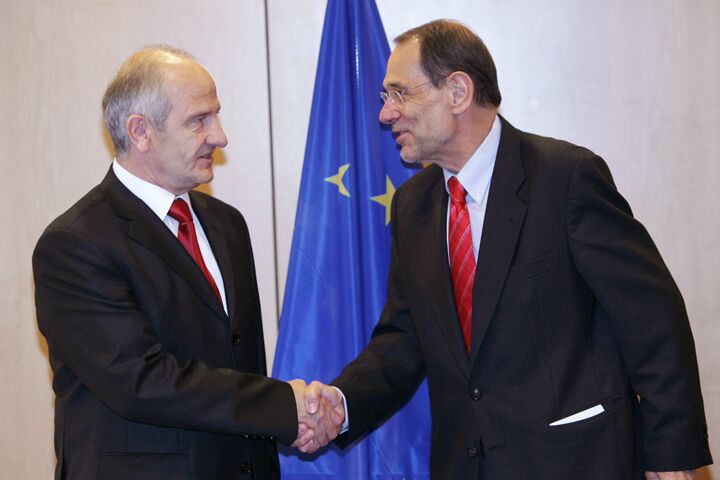
Germany to Represent EU in Kosovo Talks
The European Union has announced that its envoy for talks on the future of Kosovo will be a German. The announcement of Wolfgang Ischinger’s appointment was made by EU foreign policy chief Javier Solana on Sunday.
Ischinger, along with diplomats from the United States and Russia, will negotiate the future status of the Serbian province, which has demanded full independence from Belgrade. The province is currently administered by the United Nations. A UN plan to grant Kosovo internationally monitored independence was blocked by Russia a week ago.
Bonn-based Deutsche Welle reports Ischinger to be an “expert” in Balkan affairs.
The appointment of a German to the delegation is noteworthy, considering Germany’s history in the Balkans. Berlin has been instrumental in destabilizing the region in the past, as editor in chief Gerald Flurry wrote in the February 2002Trumpet.
Germany’s history with the region includes the conflict between Yugoslavia’s King Alexander i and militant Germany between World Wari and World War ii. The regent commanded the Serbian army against attacking German and Austro-Hungarian forces during World War i. Nazi and fascist maneuvers frustrated his ongoing efforts to consolidate Yugoslavia under his power, eventually enabling Croatia to establish itself as its own administrative province, following the assassination of the king during a state visit to France to strengthen the second alliance between the two nations in as many world wars.
Yugoslavia contained the present-day countries of Croatia, Slovenia and Serbia, as well as three others.
In an attempt to avoid an Axis invasion, Yugoslavia signed the Tripartite Pact in Berlin in 1941, but immediately withdrew when the Serbian population broke out in demonstrations against the Axis. German army and air forces, along with other Axis troops, responded by invading and overpowering Yugoslav forces.
During World War ii, the Croatian puppet state was officially recognized by the Third Reich as a Nazi state. With the backing of Hitler’s Germany, Croatia enacted racial supremacy laws aimed to exterminate ethnic Serbs, building concentration and extermination camps including Jasenovac, where up to 700,000 people, mostly ethnic Serbs, were murdered.
During the 1990s, the United States and most other governments initially opposed the breakaway of Croatia and Slovenia from the former Republic of Yugoslavia, while Germany not only recognized them diplomatically but also later supported them militarily. The action further destabilized the already fractious and ethnically charged area.
Surprisingly, Germany’s history in the region was swept clumsily under the rug. Majority world opinion against Berlin’s actions wavered; nations eventually and somewhat reluctantly consented to its plans for the region—and even helped bomb Belgrade into submission. Claims of widespread “ethnic cleansing,” which served to grease the wheels for public approval of nato’s action in Kosovo, went unsubstantiated.
It appears that Kosovo, whose ties to Germany are particularly tight, will soon become Berlin’s next Balkan pawn in spite of historical warning signs.
To learn more about Germany’s history in the former Yugoslavia of using diplomatic subterfuge followed by military and ethnic warfare, as well as what to expect for World War iii, read The Rising Beast—Germany’s Conquest of the Balkans.
